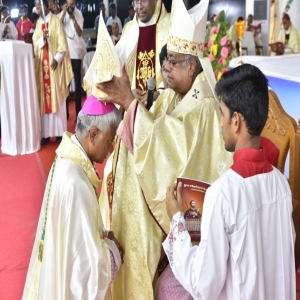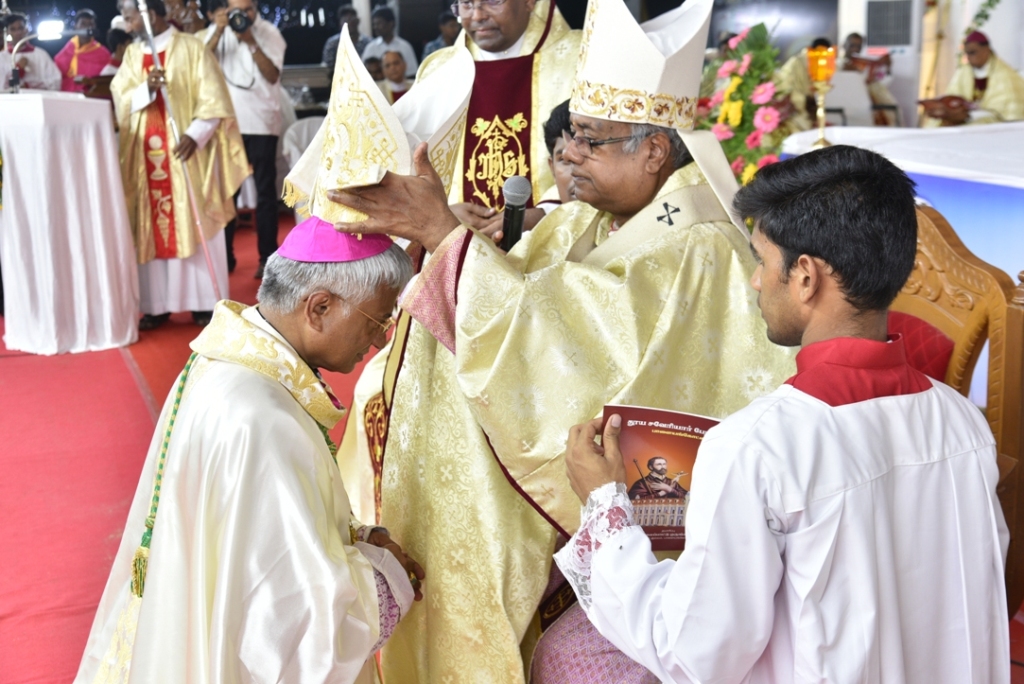

Recently, the Catholic Church in India has witnessed an increasing trend of grandiose celebrations, including centenaries of dioceses, anniversaries of religious congregations, and lavish jubilees for bishops and priests. One of the most extravagant and financially burdensome events is the consecration and installation of bishops.
Participating in episcopal consecrations and installations across India often reveals a stark contrast between the Church's mission and the actual practice. Each of these events incurs a minimum expenditure of 20 to 25 lakh rupees, covering a wide range of expenses: the invitation of the apostolic nuncio, travel and accommodation for bishops and clergy, elaborate liturgical arrangements, choir costs, printed song sheets, grand receptions, advertisements in Catholic magazines, and extensive logistical preparations such as stage setup, lighting, and audiovisual systems, sumptuous meals to the clergy and religious and a packed parcel to the participants and thus the list continues.
Ironically, while dioceses allocate significant funds for these celebrations, many struggle to maintain essential infrastructure. Schools under their administration lack funds to renovate toilets, and parish churches face challenges repairing leaking roofs.
The paradox is evident—spending lakhs on an installation ceremony while neglecting pressing pastoral and social responsibilities.
Canon Law and Episcopal Installations
The Code of Canon Law provides clear guidelines regarding the assumption of office by a bishop:
1. For an established diocese: A bishop takes canonical possession of his diocese by presenting the apostolic letter to the college of consultors in the presence of the chancellor of the curia, who records the event. (Cf. Can. 382 §3, CIC 1983)
2. For a newly erected diocese: The bishop takes possession by communicating the apostolic letter to the clergy and faithful in the cathedral church, with the senior-most priest present recording the event. (Cf. Can. 382 §3, CIC 1983)
3. Faithful participation and location: The Code merely recommends that the ceremony take place in the cathedral and that the faithful be invited. It is not a mandate for an opulent celebration but rather a solemn, meaningful liturgical act. (Cf. Can. 382 §4, CIC 1983)
The Need for Reform
With the availability of live telecasts, the necessity for mass gatherings at such exorbitant events is questionable. Bishops are often welcomed separately in every parish and religious institution following their installation—rendering the grand initial celebration redundant and wasteful.
As clergy, religious, and all faithful, as pilgrims of hope in a synodal Church, we bear the moral obligation to counsel our local ordinaries against such extravagant practices. We must advocate for a more austere and Christ-centric approach to these ceremonies, aligning them with the spirit of the Gospel and the needs of the faithful.
Encouraging such opulence among predominantly poor communities is not just an oversight but a grave counter-witness. Justifications under any pretext are neither sustainable nor evangelically sound.
Constructive reflections and counterarguments are welcome on this issue.